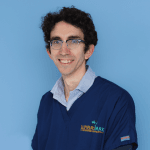Setting up an advanced clinical practice training programme in non-surgical oncology
The workforce crisis in non-surgical oncology is well recognised; The Royal College of Radiologists (RCR) Clinical Oncology Workforce Census 2022 estimates a 25% shortfall in the consultant oncologist workforce by 2027. The demand continues to increase with a rising incidence of cancer, technological advances in radiotherapy planning and delivery, and new indications for systemic and […]The workforce crisis in non-surgical oncology is well recognised; The Royal College of Radiologists (RCR) Clinical Oncology Workforce Census 2022 estimates a 25% shortfall in the consultant oncologist workforce by 2027. The demand continues to increase with a rising incidence of cancer, technological advances in radiotherapy planning and delivery, and new indications for systemic and combined treatments. In response, the NHS is looking to develop the roles of non-medical practitioners, and in 2018 Health Education England (HEE) published its national Multi-professional Framework for Advanced Clinical Practice in England document. Professions across the non-surgical oncology workforce have high levels of knowledge and skills, providing innovative practices to deliver high quality patient care. The Aspirant Cancer Career Education and Development (ACCEnD) initiative by the HEE and Macmillan Cancer Care has produced a framework for career development. It sets standards for levels of practice from undergraduate through to non-medical consultant level practice. Opportunities for career progression are attractive and should improve retention of professional staff in a competitive workplace. Therefore, development of education and training within non-surgical oncology (NSO) is gaining momentum to develop the future workforce.
The content on this page is provided by the individuals concerned and does not represent the views or opinions of RAD Magazine.



